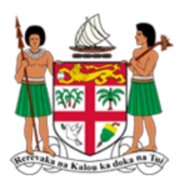Best Arrests & Searches Lawyers in Fiji
Share your needs with us, get contacted by law firms.
Free. Takes 2 min.
Or refine your search by selecting a city:
List of the best lawyers in Fiji
About Arrests & Searches Law in Fiji
Arrests and searches in Fiji are regulated by the Criminal Procedure Code, which outlines the rules and procedures that must be followed by law enforcement officers when making an arrest or conducting a search. These laws are in place to protect the rights of individuals and ensure that arrests and searches are conducted lawfully and fairly.
Why You May Need a Lawyer
You may need a lawyer if you have been arrested or are facing a search by law enforcement. A lawyer can help protect your rights, provide legal advice, and represent you in court if necessary. It is important to have a lawyer on your side to ensure that your rights are upheld and that you receive a fair outcome.
Local Laws Overview
In Fiji, police officers have the authority to arrest individuals who have committed a criminal offense or are suspected of doing so. Searches can be conducted with a warrant or in certain circumstances without one, such as when evidence may be destroyed if not acted upon quickly. It is important for individuals to be aware of their rights during an arrest or search, including the right to remain silent and the right to legal representation.
Frequently Asked Questions
1. Can the police search my house without a warrant?
Police can search a premises without a warrant if they have reasonable suspicion that evidence may be destroyed or if there are exigent circumstances present.
2. What are my rights during an arrest in Fiji?
You have the right to remain silent, the right to legal representation, and the right to be informed of the reasons for your arrest.
3. Can I refuse a search if the police do not have a warrant?
You can refuse a search if the police do not have a warrant, unless there are exigent circumstances present that justify a search without a warrant.
4. What should I do if I am arrested?
Remain calm, exercise your right to remain silent, and ask to speak to a lawyer as soon as possible.
5. How long can the police hold me without charging me?
The police can hold you for up to 48 hours before they must either charge you or release you.
6. Can I be arrested for a minor offense?
Yes, you can be arrested for a minor offense if it is a criminal offense under the law.
7. Can I be arrested for resisting arrest?
Yes, if you resist a lawful arrest, you can be charged with resisting arrest.
8. Can I be arrested for not providing identification to the police?
It is a legal requirement to provide identification when requested by the police. Failure to do so may lead to arrest.
9. Can the police conduct a search of my vehicle during a traffic stop?
Police can conduct a search of your vehicle during a traffic stop if they have reasonable suspicion that evidence of a crime may be present in the vehicle.
10. Can I be arrested for refusing to take a breathalyzer test?
Refusing to take a breathalyzer test can lead to arrest and additional charges for failing to comply with a lawful request from the police.
Additional Resources
If you require legal assistance regarding arrests and searches in Fiji, you may contact the Fiji Law Society or seek advice from a qualified lawyer specializing in criminal law.
Next Steps
If you find yourself in a situation where you require legal assistance for an arrest or search in Fiji, it is important to remain calm, exercise your rights, and seek legal advice as soon as possible. Contact a lawyer who can guide you through the legal process and ensure that your rights are protected.
Lawzana helps you find the best lawyers and law firms in Fiji through a curated and pre-screened list of qualified legal professionals. Our platform offers rankings and detailed profiles of attorneys and law firms, allowing you to compare based on practice areas, including Arrests & Searches, experience, and client feedback.
Each profile includes a description of the firm's areas of practice, client reviews, team members and partners, year of establishment, spoken languages, office locations, contact information, social media presence, and any published articles or resources. Most firms on our platform speak English and are experienced in both local and international legal matters.
Get a quote from top-rated law firms in Fiji — quickly, securely, and without unnecessary hassle.
Disclaimer:
The information provided on this page is for general informational purposes only and does not constitute legal advice. While we strive to ensure the accuracy and relevance of the content, legal information may change over time, and interpretations of the law can vary. You should always consult with a qualified legal professional for advice specific to your situation.
We disclaim all liability for actions taken or not taken based on the content of this page. If you believe any information is incorrect or outdated, please contact us, and we will review and update it where appropriate.
Browse arrests & searches law firms by city in Fiji
Refine your search by selecting a city.













